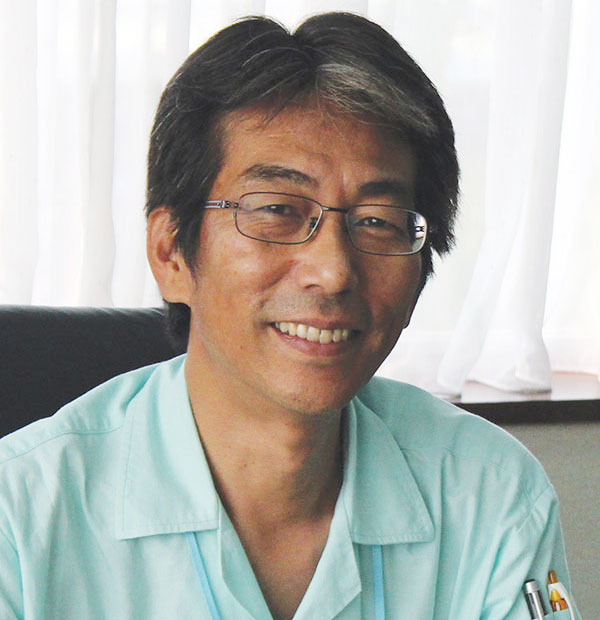FDI firms provide forthright advice

illustration photo
Crispin Bui IBM ASEAN executive and general business manager of IBM Vietnam
 Since its official return to Vietnam in 1996 as a 100 per cent foreign-invested IT company, IBM has grown fast in the market with serious long-term commitment and focused investments from the corporation. In the past few years, like other investors, we have been concerned about the post-crisis prospects, when many of our clients are uncertain about their sustainability. The increasingly interconnected economies, enterprises, societies and governments have made the new economic environment substantially more complex, more uncertain and more unpredictable.
Since its official return to Vietnam in 1996 as a 100 per cent foreign-invested IT company, IBM has grown fast in the market with serious long-term commitment and focused investments from the corporation. In the past few years, like other investors, we have been concerned about the post-crisis prospects, when many of our clients are uncertain about their sustainability. The increasingly interconnected economies, enterprises, societies and governments have made the new economic environment substantially more complex, more uncertain and more unpredictable.
IBM views marketplace volatility as an indispensable part of doing business globally. Importantly, the Vietnamese government has been seeing FDI as a driving factor for the country’s economic growth. In 2014, IBM would like to see vast new opportunities for FDI companies brought about by a more favourable foreign contractor tax.
Besides, international investors will be more confident in a market enabled by a more transparent investment environment, such as clearer and more friendly description and explanation of existing procedures, simplified entry and approval procedures, clear guidelines on opening the services market, reinforced Intellectual Property Law, and concrete laws to mitigate corruption.
Thomas McClelland Tax partner of Deloitte Vietnam
 Deloitte advises the following steps: A full deduction for advertising and promotional expenditure would encourage new entrants into the market.
Deloitte advises the following steps: A full deduction for advertising and promotional expenditure would encourage new entrants into the market.
Generally broaden the qualifying criteria for tax incentives that have narrowed down since 2009, to be competitive with other countries in the region. Allow retroactive applications of business expansion incentives back to 2009 and have more flexible qualifying criteria in 2014.
Have a clearer, simpler and more certain tax system
I believe that foreign investors are now very concerned with what has been appearing in the press where nearly every major multinational has been (unjustifiably) accused of tax evasion. The reason for this is unclear.
This is the first time I have seen this in Vietnam over the last 15 years and it will affect potential new investors who are always concerned about their reputation and there is no independent appeal mechanism in Vietnam for tax authority decisions. There has to be more understanding of the reality of business. These companies generally wish to pay their fair share of tax, so making it easier to pay tax is another issues to be addressed as Vietnam is still a long way down the World Bank list of countries in terms of ease of paying taxes, and a more accommodating approach needs to be adopted from now on.
Kevin Snowball CEO of PXP Vietnam Asset Management
 In our opinion Vietnam’s current macro-economic landscape provides an excellent backdrop for the continuation of the bull market of the past two years. We would caveat that bullish opinion, however, by stating that we feel that those benign conditions may be undone if the relaxation of foreign ownership limits continues to be delayed.
In our opinion Vietnam’s current macro-economic landscape provides an excellent backdrop for the continuation of the bull market of the past two years. We would caveat that bullish opinion, however, by stating that we feel that those benign conditions may be undone if the relaxation of foreign ownership limits continues to be delayed.
Foreign investors are willing, and able to wait until access to stocks that they want to buy are improved, whereas Vietnam’s notoriously impatient and fickle retail investors, who will continue to dominate trading until such time as foreigners are actively encouraged to participate or a domestic institutional investor base develops, will quickly lose interest and take profits.
Katsuyoshi Soma General director of Canon Vietnam
 Canon Vietnam has three proposals which we hope can help Vietnam improve its custom procedures, supporting industries, electricity supply, and transport system to meet development demands.
Canon Vietnam has three proposals which we hope can help Vietnam improve its custom procedures, supporting industries, electricity supply, and transport system to meet development demands.
Firstly, Vietnam should further reduce administrative tasks related to customs procedures. Already Vietnam has launched the authorised economic operators (AEO) programme that reduced many of the procedures. We produce printers in Vietnam as well as export them all over the world. The AEO programme helped us complete our mission to deliver our products to customer on time.
Vietnam has enacted many policies to improve its infrastructure over the last ten years. In the near future, infrastructure still has to develop strongly. Canon also hopes that Vietnam can meet increasing electricity demands.
We still depend on materials and components from other countries. We expect to carry out these investment activities in Vietnam. In my opinion, to maintain competitiveness against other countries, the government must find ways to boost supporting industries. Vital to this is developing skilled labourers for these supporting industries.
Rudolf Hever Executive director of Alternative Real Estate Service Co.
 Firstly, it is important to recognise that the Vietnamese government has achieved significant results over the past year in terms of macro stability, and because of this the economy is in a lot better shape as we enter 2014 than it was a year ago.
Firstly, it is important to recognise that the Vietnamese government has achieved significant results over the past year in terms of macro stability, and because of this the economy is in a lot better shape as we enter 2014 than it was a year ago.
Inflation has come right down to end the year at a remarkable 6.6 per cent, the lowest in a decade and more importantly, inflationary expectations going forward have also decreased. Exports remain strong, with the economy having achieved a trade surplus in 2013, for the second consecutive year.
As a result, the Vietnamese dong has been remarkably stable over the last couple of years. The NPL problem seems to be contained, but will take a few more years to be completely resolved.
Foreign investors are taking note, as reflected in the total new FDI commitments, which reached $21.6 billion in 2013, up 54.5 per cent.
So we need to be careful not to just keep advising on the sidelines and asking more from the government, while sitting around and waiting for something to happen. I think in 2014, it is time for investors to step up and to start putting some serious capital to work – in fact, it is happening already as evidenced by FDI and I expect this to continue.
To further encourage real estate investment and bolster the confidence of investors, the main area that still has a lot of room for improvement is transparency. Vietnam ranked 116 out of 177 in the Corruption Perceptions Index 2013 without making much progress from 2012 and lagging behind most of its Southeast Asian counterparts.
There needs to be a lot more transparency in the real estate market, in all aspects including transactional information, as well as the during the entire approval process. Developers need to have a much clearer picture of how long their development approval will take and the total costs involved.
Sanjeev Kumar General director of Japfa Comfeed Vietnam
 Since Vietnam needs to import many raw materials from developed countries, especially protein and energy based raw materials, the cost of meat production in Vietnam is very high compared to other countries.
Since Vietnam needs to import many raw materials from developed countries, especially protein and energy based raw materials, the cost of meat production in Vietnam is very high compared to other countries.
With a lot of imported meats especially chicken coming to Vietnam from developed countries, local producers and farmers have become uncompetitive when comparing local costs of meat production against import prices. Also large quantities of imports have resulted in over-supply causing losses to farmers and companies. Policies should be re-examined in order to maintain a bright future for the feed and animal farming industry.
In addition, land acquisition and other procedural policies for FDI should be simplified with single window clearance with actual implementation within a stipulated time. Sea-port and other infrastructure development policies and plans also need to be implemented more quickly to accommodate industry’s rapid growth. Finally, Value added tax (VAT) should be also reduced to help farmers and consumers reduce the cost of meat.
Nguyen Viet Ha Managing director of BowerGroupAsia (Vietnam)
 Foreign pharmaceutical companies have been facing increasing challenges in Vietnam. For instance, the Ho Chi Minh City People’s Committee recently required public hospitals to reduce 70 per cent of brand name products and replace them with generic drugs, which are mainly manufactured locally.
Foreign pharmaceutical companies have been facing increasing challenges in Vietnam. For instance, the Ho Chi Minh City People’s Committee recently required public hospitals to reduce 70 per cent of brand name products and replace them with generic drugs, which are mainly manufactured locally.
So, what are the impacts of such a protectionist policy?
Beside the negative impacts on foreign pharmaceutical companies, such a policy may have impacts on the healthcare services and the patients’ interests. It may cause a shortage in drug supply and potentially increase smuggling of brand names.
It also limits doctors and patients from access to the best available drugs for treatment. Additionally, it may create conditions for a monopoly of generic drugs, while it does not prevent doctors from prescribing brand name drugs based on patients’ demand. Furthermore, it does not help to reduce the costs of medical treatment.
If locally made medicines do not effectively treat the problem, the costs of treatment will be higher.
Healthy and fair competition with foreign pharmaceutical companies should be the best motivation for local pharmaceutical companies to improve themselves.
What the stars mean:
★ Poor ★ ★ Promising ★★★ Good ★★★★ Very good ★★★★★ Exceptional
Latest News
More News
- Vietnamese businesses diversify amid global trade shifts (February 03, 2026 | 17:18)
- Consumer finance sector posts sharp profit growth (February 03, 2026 | 13:05)
- Vietnam and US to launch sixth trade negotiation round (January 30, 2026 | 15:19)
- NAB Innovation Centre underscores Vietnam’s appeal for tech investment (January 30, 2026 | 11:16)
- Vietnam moves towards market-based fuel management with E10 rollout (January 30, 2026 | 11:10)
- Vietnam startup funding enters a period of capital reset (January 30, 2026 | 11:06)
- Vietnam strengthens public debt management with World Bank and IMF (January 30, 2026 | 11:00)
- PM inspects APEC 2027 project progress in An Giang province (January 29, 2026 | 09:00)
- Vietnam among the world’s top 15 trading nations (January 28, 2026 | 17:12)
- Vietnam accelerates preparations for arbitration centre linked to new financial hub (January 28, 2026 | 17:09)
















 Mobile Version
Mobile Version